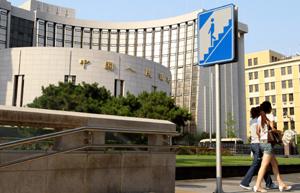BEIJING - China's cashmere exports may decline next year due to higher prices caused by an upsurge in raw material purchases because of domestic inflation and limited supply.
"We have already seen the increase in orders from foreign countries slow down when discussing exports with overseas clients, some of whom reject the price increase of our products," Zhuang Beining, deputy general manager of China Tuhsu Snow-Lotus Co Ltd, one of China's largest cashmere products companies, told China Daily.
"The effect of inflation and the raw material shortage on our business will be more serious next year," Zhang said, adding that the growth of the company's cashmere exports this year is 20 percent, but the number would be much smaller next year.
No more than 8,000 tons of raw cashmere wool are produced annually, according to the China Chamber of Commerce of Import and Export of Foodstuffs, Native Produce and Animal By-Products (CFNA).
"Due to the anxiety about domestic inflation, many Chinese companies rushed to purchase raw cashmere, and bidding has driven the price to an all-time high over the past few months," said Shi Yousheng, a cashmere dealer.
Shi said the price of raw cashmere increased by 12 percent to 840,000 yuan ($125,255) a ton this month from the same period last year.
Shi imports raw cashmere, mainly from Mongolia and Afghanistan, and sells it to foreign and domestic companies after processing.
Following China, Mongolia and Afghanistan are respectively the second- and third-largest raw cashmere suppliers in the world.
"The price of raw cashmere is now at an all-time high," said Tian Hong, director of the byproducts and carpet department at CFNA.
"But the higher price will depress the profit margin of China's exporters, because the price of cashmere goods on the international market hasn't stayed in step with the raw material," Tian said.
 Credit supply may top govt targets
Credit supply may top govt targetsCFNA estimated a lower growth in China's cashmere exports for the whole year. A 15 percent annual growth is expected this year. For the first nine months, the export volume increased by 23 percent year-on-year.
At present, China is the world's leading supplier of raw cashmere wool, accounting for 75 percent of global production.
In addition, three-fourths of global cashmere goods are finished in China and then exported to US and European markets.
"To maintain the stability of our export business and meet the challenges brought by the increasing price of raw cashmere, we also need to promote our brand value while strengthening the quality of products," said Zhang Zhi, chief engineer of Erdos Cashmere Group Corp, the world's biggest cashmere products company.





